Hey, Healthy! If you want to know the best and worst low-carb foods, then let’s explore this great guide…
When it comes to these low-carbohydrate diets, they have their little differences here and there with protein, fat, or total calories. Still, there’s one thing they all agree on, loud and clear: carbs ain’t gonna be taking up more than 30% of your daily calories (and that’s way lower than the 45-65% range the Institute of Medicine suggests).
Now, let’s talk about the keto diet, my friend. This bad boy takes things to a whole new level. We’re talking a measly 5% of your daily calories coming from carbs! Why, you ask? Well, that’s because it keeps your body in a state of ketosis, where it’s burning fat like a champ instead of relying on wimpy old blood sugar for fuel. Now, isn’t that something?
Table of Contents
What are The Best And Worst Low-Carb Foods?

Let’s get a few things straight before you hop on the low-carb train, my friend. Whether it’s the right path for you depends on your own body and goals, so remember to have a chat with your doctor. Now, if you decide to go the LCHF route for short-term health goals, remember this: there’s a healthy and unhealthy way to do it, just like any other diet.
Keep your focus on nutrient value, not just net carbs. Now, let me share the best and worst foods to help you cut those carbs without causing any harm.
Ready? Let’s dive in!
The 10 Best Low-Carb Foods

When it comes to the best low-carb foods, nature is where it’s at. We’re talking about minimally processed foods, free from any unnecessary chemicals, additives, or pesky pesticides. Stick with what Mother Nature has to offer, and you’ll be on the right track.
1. Low-Carb Veggies:

Let’s clear up a common misconception, my friends. Just because veggies contain some carbs doesn’t mean you should kick them to the curb!
In fact, vegetables are an absolute must for a healthy diet. They provide essential nutrients and pack a punch with their fiber content, which means they’re lower in net carbs (that’s what we track on an LCHF diet).
If you load up on leafy greens and vibrant low-carb vegetables, you’ll be treating your body to an abundance of disease-fighting antioxidants. Isn’t that fantastic?
Here’s a little tip: veggies that grow above ground tend to be lower in net carbs. Of course, there are exceptions to every rule. Take pumpkins, for example. They may grow above ground but tend to be higher in carbs. Keep that in mind, my friends.
- Broccoli
- Cauliflower
- Brussel Sprouts
- Kale
- Spinach
- Onions
- Tomatoes
- Mushrooms
- Peppers
- Turnips
- Cabbage
- Swiss Chard
- Asparagus
- Collard Greens
- Green beans
- Arugula
- Leeks
- Bok choy
2. Nuts & Seeds:

They’re jam-packed with all the good stuff: healthy fats and essential nutrients that do wonders for your health and weight loss goals.
These gems are particularly rich in alpha-linolenic acid, which is known for its ability to support the body’s natural anti-inflammatory response. And that’s not all! They also boast a generous amount of mono & polyunsaturated fats, which have been shown to promote healthy blood sugar regulation. Isn’t that fantastic news?
- Chia seeds
- Sunflower seeds
- Sesame seeds
- Brazil Nuts
- Flaxseeds
- Almonds
- Walnuts
- Hazelnuts
- Macadamia nuts
- Pili nuts (the lowest-carb nut!)
- Pumpkin Seeds
- Hemp seeds
3. Cage-Free Eggs:
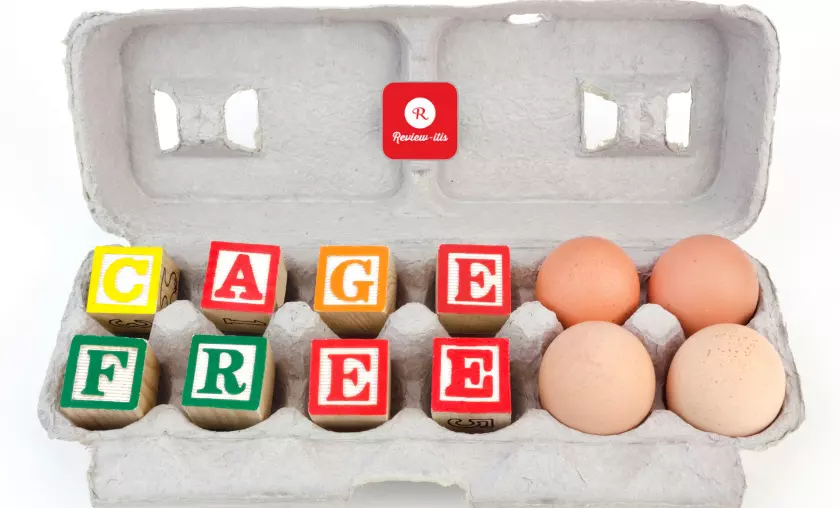
They are a true gift from nature when it comes to packing a punch of nutrients. Just think about it – you’ve got a solid 6 grams of protein in each egg, 9 essential amino acids, and 14 key nutrients. Talk about a powerhouse!
Now, here’s the thing: eggs do contain cholesterol, but don’t fret just yet. Recent research suggests that it may not have the negative impact on heart health that was once believed. Why, you ask? Well, eggs also contain phospholipids, which have been shown to support healthy cholesterol levels. Isn’t that fascinating? So, go ahead and enjoy those eggs with confidence, my friends. They’re truly a nutritious delight. (3)
4. Pasture-Raised Meat & Seafood:
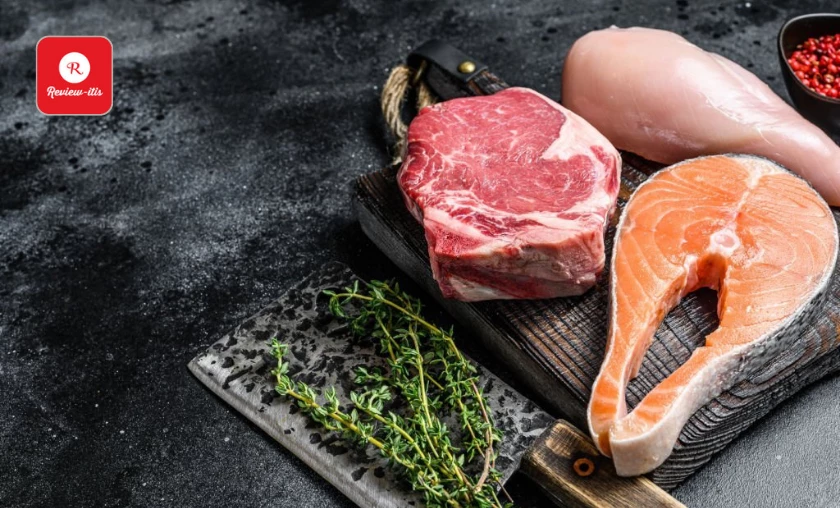
These have zero carbs and are absolutely fantastic sources of protein and healthy fats.
Now, when it comes to meat, I want you to be smart about your choices. Opt for grass-fed meats and free-range poultry. Trust me, they’re the real deal. On the other hand, conventionally-farmed meats? Not so much. They’re lacking in nutrients and tend to be higher in inflammatory fats. These poor animals are raised in unhealthy conditions, fed unnatural diets that are low in nutrients & pumped full of antibiotics and growth hormones. Avoid them like the plague, my friends.
Now, let’s dive into seafood. Oh, the wonders of the sea! When you’re indulging in seafood, go for the wild-caught variety. They’re the stars of the show. Just keep in mind that shellfish and larger fish like tuna may contain higher levels of heavy metals such as mercury. So, enjoy them in moderation, my friends. Let’s keep it safe and delicious!
5. Fermented Foods:

These have been dietary staples for centuries in various cultures, and there’s a darn good reason for that!
Fermented foods like sauerkraut, kimchi, and kombucha are teeming with beneficial bacteria that work wonders for your digestion and gut health. They’re like little superheroes for your tummy! (5).
Here’s a little tip: many of these gut-friendly foods are low in carbs. But, and this is an important “but,” make sure to read those labels! You see, kombuchas, in particular, can sometimes sneak in added fruit juice or even sugar for flavoring. And you know what that means? It significantly increases the carb count. So, be a savvy label reader, my friends, and keep those carbs in check while enjoying the magic of fermentation.
6. Healthy Fats/Oils:

Fats are an absolute must for low-carb success, believe me.
They keep you satiated without sending your blood sugar on a roller coaster ride and work wonders in managing those pesky sugar cravings. Isn’t that fantastic?
Here’s a nugget of wisdom from today’s experts: a diet higher in healthy fats is the way to go. We’re talking about those marvelous mono and polyunsaturated fats, as well as those omega-3 fatty acids. They’re like superheroes supporting your metabolic health, weight management, and overall vitality. Talk about a winning combo!
And let’s not forget, my friends, that the keto craze has shown us one important truth: eating fat alone does not magically transform you into a walking lard factory! So, let go of those fat-phobia worries and embrace the goodness of healthy fats. Your body will thank you for it.
- Extra Virgin Olive Oil
- Coconut Oil
- Hemp oil
- Flaxseed oil
- Avocado oil
- Avocados
- Grass-fed butter or ghee
- Walnut
7. Bone Broth:

Let me tell you about this wonderful traditional food, my friends. It’s none other than bone broth and a powerhouse of goodness.
Bone broth is packed with essential nutrients like collagen, amino acids, & minerals such as calcium, magnesium, and potassium. It’s like a nutrient treasure chest!
But that’s not all. Bone broth has been shown to work wonders for our bodies. It supports bone and joint health, giving them the love and care they deserve. It also lends a helping hand to our digestion and immune system, keeping them in tip-top shape. (6, 7) So, don’t underestimate the power of this mighty broth. It’s a true superstar!
8. Unsweetened Beverages:
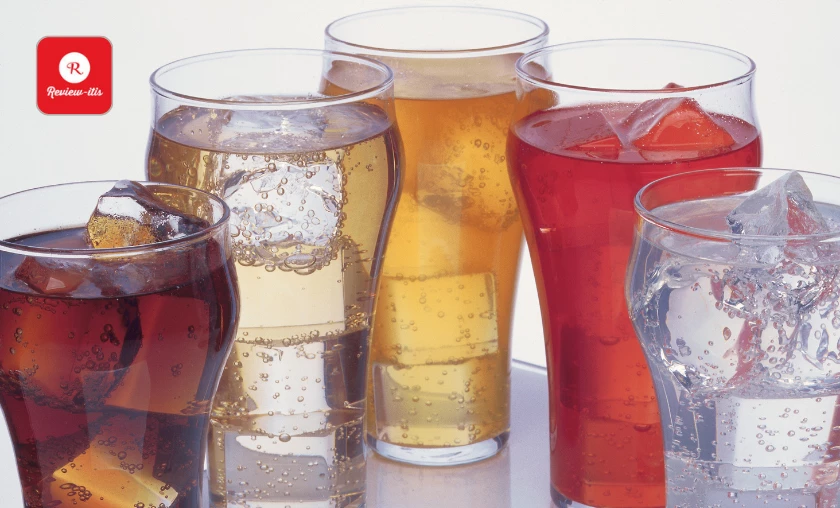
It’s an absolute must for maintaining your energy levels and overall health. But here’s the thing, any of these unsweetened beverages can also play a valuable role in a low-carb diet, keeping things healthful and refreshing.
So, stay hydrated and enjoy the benefits of these wonderful drinks as part of your low-carb journey. Cheers to that!
- Water or sparkling water
- Unsweetened nut milk
- Black coffee
- Tea (black, green, herbal, rooibos, etc.)
9. 100% Dark Chocolate/Cacao:

Oh, my dear chocolate lovers, I have some delightful news for you. You can keep that delicious treat as part of your low-carb lifestyle, and I’ll tell you why!
Cocoa, my friends, is a true gem. It’s packed with something called flavanols, these amazing chemical compounds that may lend a helping hand in healthy blood sugar regulation and even support your precious heart. Isn’t that fantastic?
When you go on your chocolate hunt, aim for at least 70% cacao. This ensures the lowest sugar and carb content. And guess what? Some keto-friendly dark chocolate bars are out there, sweetened with zero-calorie, natural sweeteners like stevia. How sweet is that?
So, my friends, embrace the goodness of cocoa and indulge in a guilt-free, low-carb chocolate experience. It’s a true delight for your taste buds and your health. Enjoy!
10. Slow Carbs:

You see, it’s not just about the quantity; the quality of carbs plays a significant role in our health.
Think about it: those pesky refined carbohydrates quickly get digested and cause mayhem in our bodies, not the high-fiber sources that are the real culprits. It’s all about making the right choices. (8)
Now, if you’re cutting back on carbs but not following a strict keto diet, here’s a tip for you. Consider incorporating some nutrient-dense carbs into your eating plan. These carbs won’t send your blood sugar on a roller coaster ride like processed carbs do. My friends, it’s all about finding that balance and making mindful choices. Your health will thank you for it.
- Beans and lentils
- Starchy vegetables (sweet potatoes, beets, celeriac, parsnips)
- Lower-carb fruit (melon, citrus, kiwi)
- Berries (blueberries, strawberries, blackberries, raspberries)
The 10 Worst Low-Carb Foods

1. Protein Powders:
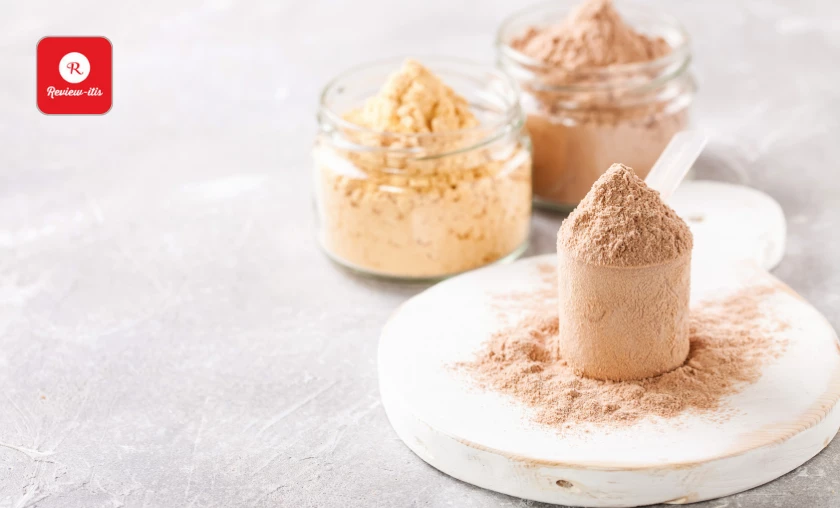
Hold on! my friends, because I have some eye-opening information for you. There’s this nonprofit group called the Clean Label Project, and they took it upon themselves to test 134 popular protein powders. And let me tell you, the results are quite alarming.
You won’t believe what they found. Many of these protein powders were contaminated with heavy metals like lead, arsenic, cadmium, and mercury. They also discovered the presence of bisphenol-A (BPA), pesticides, and other compounds linked to undesirable health conditions.
Just take a moment to absorb this: a whopping 70% of the samples contained lead, while 74% contained cadmium. Can you believe it?
And here’s the real shocker: one of these protein powders had over 25 times the allowed regulatory limit of BPA! This notorious hormone disruptor has been associated with cancer and birth defects. I don’t know about you, but that sends shivers down my spine.
So, my friends, here’s my advice: let’s skip those protein smoothies for now. Instead, opt for naturally high-protein foods like eggs or nuts. They’ll provide you with the protein you need without the worrisome contaminants. Let’s prioritize our health and make informed choices. Stay safe out there!
2. Low-Carb Tortillas & Bread:

Tortillas and white bread. If it seems too good to be true, that’s because it probably is.
These so-called “low-carb” breads and tortillas are nothing more than imitations. They’re crafted with highly refined, artificial, and chemically altered compounds. We’re talking about things like modified wheat starch, vital wheat gluten, and hydrogenated vegetable oils. Not exactly the wholesome ingredients we’re looking for, right?
Instead, let’s consider a smarter alternative. How about using a trusty lettuce wrap for your taco? It’s a fresh and vibrant choice that won’t disappoint. So, my friends, let’s skip those dubious imposters and embrace lettuce’s crisp, refreshing goodness. Your taste buds & your health will thank you for it.
3. Vegetable Oils:

We’re talking about refined oils like canola, peanut, corn, and soy. Oh, and let’s not forget about margarine and those “butter” spreads. Yes, I’m looking at you.
Here’s the thing: these fats undergo heavy industrial processing, and that’s never a good sign. They’re often hydrogenated, which creates those dreaded trans fats that can wreak havoc on our health. Not something we want to invite into our bodies.
But wait, there’s more. These fats have another issue. They have an imbalanced ratio of Omega-6 to Omega-3 fats, leaning heavily on the Omega-6 side. And let me tell you, my friends, that can be problematic. Omega-6 fats have been associated with promoting inflammation and are potentially linked to chronic inflammatory diseases and obesity. They are not exactly the kind of fats we want to be cozying up to. (9), (10)
So, let’s make a wise choice, my friends. Let’s steer clear of these industrially processed vegetable fats and opt for healthier alternatives. Your body will thank you for it.
4. Processed Meat:

It may be free of carbs, but here’s the thing: according to the World Health Organization, some convincing evidence links processed meat to a whole host of unwanted health conditions.
When we talk about processed meat, we’re referring to meat that has gone through various processes like salting, curing, fermentation, smoking, and other methods to enhance flavor or improve preservation. Think sausage, hot dogs, jerky, bacon, salami, pepperoni, and deli meats. These are the culprits we need to be mindful of. (11)
Now, I’m not saying you need to completely banish these meats from your life. But it’s essential to be aware of their potential risks. Moderation is key, my friends. Let’s prioritize whole, unprocessed meats and focus on our overall well-being. Our bodies will thank us for it.
5. Protein Bars:
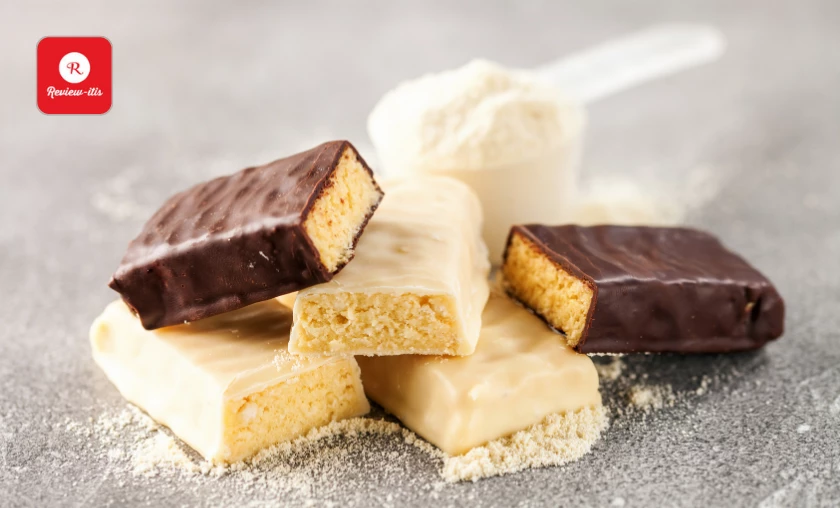
We’ve got birthday cake, cookies and cream, s’mores, and more. They sure make those low-carb protein bars tempting, don’t they? But here’s the truth: most of these bars are different from what we would consider healthy foods.
You see, these bars are highly processed. They’re loaded with unnatural additives and fillers that might not be the best for our bodies. We’re talking about emulsifiers like lecithin and xanthan gum, among others. Now, these additives have been shown to have an impact on the delicate balance of our gut microbiome and may even lead to intestinal inflammation. Not exactly the kind of effects we’re looking for. (12)
But fear not, my friends, for there is hope. Some “clean label” bars are out there, made with ingredients like almond butter, collagen, and coconut oil. These bars contain fewer additives and provide a better alternative for those times when you’re in need of a packaged low-carb snack. It’s all about making informed choices and finding that balance. Let’s keep our health a top priority and savor our occasional treats with confidence.
6. String cheese:
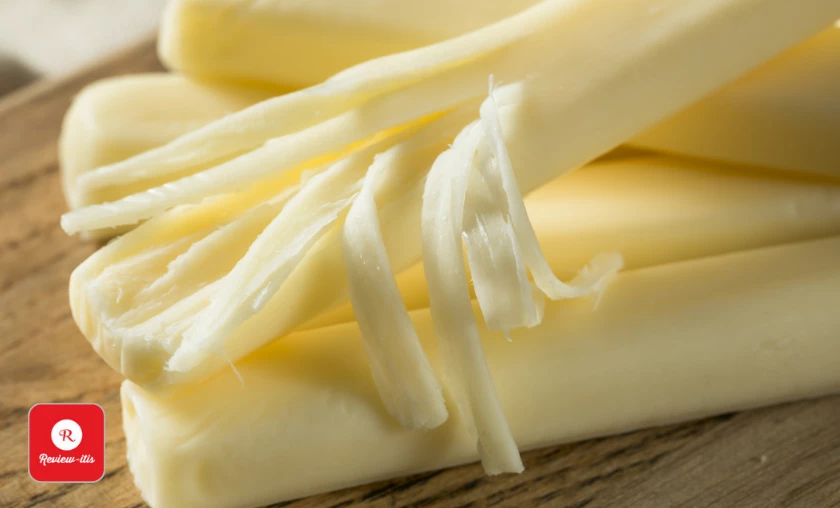
I’m looking at you, string cheese. Here’s the thing: these cheeses are often pasteurized and usually need to be more organic. And that’s a concern we need to address.
When dairy undergoes pasteurization, it’s heated to high temperatures, and unfortunately, this process kills off many of the natural bacteria and enzymes that could have promoted gut health. We want those friendly bacteria and enzymes working their magic, don’t we? (13)
Now, when it comes to dairy, it’s worth considering opting for certified organic products. Why, you ask? Well, in non-organic dairy production, there are certain practices and substances that can be used, and we want to be cautious about that. We’re talking about things like synthetic hormones, antibiotics, and genetically modified feeds. It’s always a good idea to prioritize organic options for our dairy consumption. (14)
- Animal drugs, including hormones, promote growth
- Plastic pellets for roughage
- Urea or manure added to feed
- Fed animal by-products such as animal fats and rendered products
- Supplements or additives in amounts higher than necessary for nutrition and health
Let’s be mindful of the quality of our cheeses and their impact on our well-being. Our bodies deserve the best, my friends.
7. Low-Carb Confections:
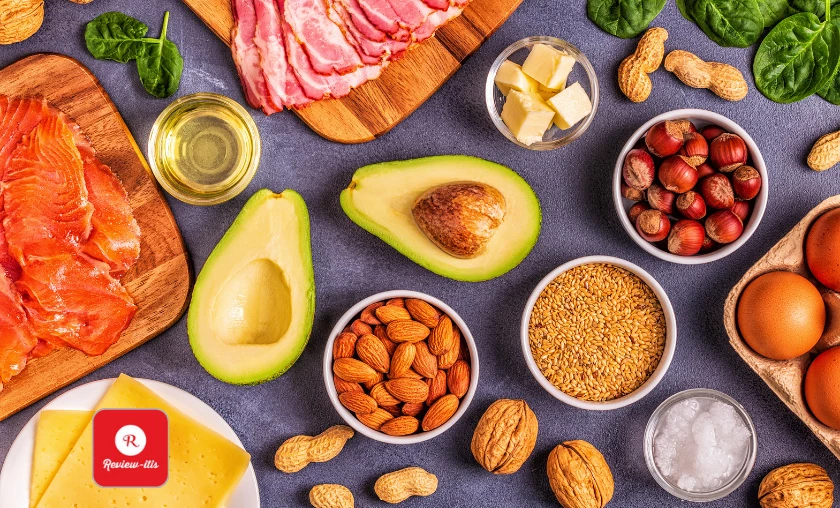
It’s time to face the truth: just because they’re low in carbs doesn’t mean they magically transform into healthy foods. Nope, not at all.
Those packaged cookies, cakes, and muffins labeled as low-carb options are still highly processed. They belong to the realm of ultra-processed foods, filled with ingredients like sugar alcohols and refined vegetable oils that may cause bloating and even inflammation. Not exactly what we want, right?
Here’s the thing: these processed junk foods offer us no real nutritional value. They simply take up space in our diets and displace the opportunity to include more nourishing and health-promoting foods. It’s time to be mindful of what we choose to indulge in, my friends, and prioritize whole, nutrient-dense options that truly support our well-being.
8. Frozen Meals:

They sure do boast enticing labels like “6g net carbs,” and boy, are they convenient. But here’s the truth: when you take a closer look at the ingredient labels, you’ll realize why most of these meals can end up costing your long-term health.
Here’s a simple rule to live by if you can’t pronounce an ingredient, there are better choices for your plate. Those unpronounceable additives and mysterious preservatives are not what we want to be putting into our bodies. We deserve better, don’t we?
Now, let me be clear. This doesn’t mean we should write off all packaged meals. Some fantastic options are out there, like frozen organic vegetables and quality meats that can serve as great meal shortcuts. They can be a real lifesaver on those busy days. Just steer clear of those TV dinner-style minute meals that come with a laundry list of questionable ingredients. Let’s prioritize real, whole foods and nourish our bodies with ingredients we can trust.
9. Diet Soda:

My friends, let’s talk about those “diet” and “zero calorie” drinks. You might think they’re the perfect solution for your low-carb lifestyle, but here’s the catch: they’re usually sweetened with artificial sweeteners.
These drinks may be low in net carbs, but scientific studies have raised concerns about artificial sweeteners. They might actually encourage those pesky sugar cravings and even contribute to weight gain. Yikes! That’s not what we signed up for, right?
But that’s not all. Recent research has shed light on another concerning aspect of non-caloric artificial sweeteners. They can actually alter our precious gut microbiome, leading to glucose intolerance. Not exactly the outcome we were hoping for.
My advice is to approach these artificially sweetened drinks with caution. It’s always better to opt for more natural alternatives and be mindful of our overall sugar intake. Remember, our health is a priority, and we want to make choices that truly support our well-being.
10. Keto Fast Food:

Finding LCHF-friendly options like bunless burgers, rice-free burrito bowls, or undressed salads at these establishments can be tempting. However, it’s important to remember that fast food is primarily designed to be addictive and affordable, not necessarily nutritious.
When we take a closer look at fast food, we find that it tends to be high in sodium, saturated fat, and preservatives while lacking in fiber, antioxidants, and other essential nutrients that our bodies need. It’s a bit of a trade-off.
What’s more concerning is that frequent consumption of fast food has been linked to systemic inflammation and oxidative stress, which can pave the way for a range of health issues we’d rather avoid.
This doesn’t mean we can never indulge in fast food, but let’s be mindful of our choices and strive for a balanced approach. Let’s prioritize whole, nutrient-dense foods that nourish our bodies and support our well-being whenever possible.
Conclusion
When it comes to LCHF (low-carb, high-fat) diets, it’s important to consider their suitability for long-term lifestyle choices. While they may be beneficial for short-term goals, it’s crucial to recognize that whole-food carbohydrates play a vital role in human nutrition.
If you do choose to pursue a low-carb diet, it’s advisable to focus on incorporating predominantly whole foods. By doing so, you can minimize the risks of nutrient deficiencies and potential long-term health consequences that may arise from relying heavily on highly processed foods. Striking a balance between carbohydrate reduction and nourishing your body with nutrient-dense whole foods is key to promoting overall well-being.
For more amazing articles related to Fitness, Checkout Now with a click
To read more similar articles, click here.
Thanks for visiting our Website. If you appreciate our work, kindly show us some support in our comments section. 🙂